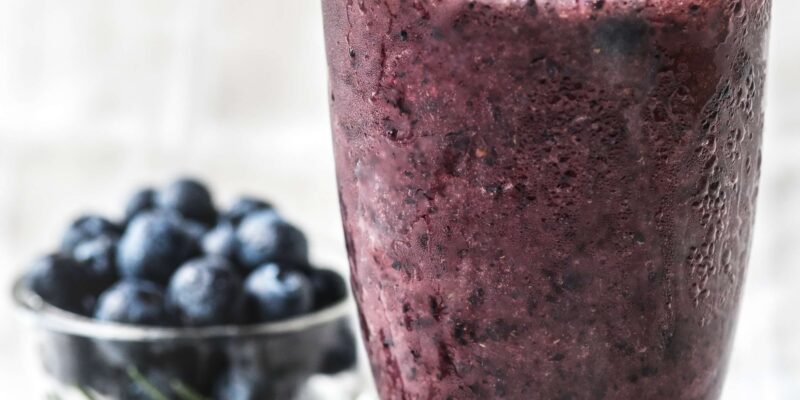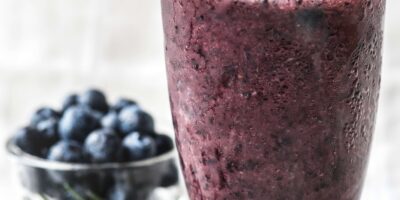
Fact: smoothies taste great.
Plus they are a great way to get extra nutrients into your diet.
Plus you can post cool photos online ensuring you communicate to everyone how good you are at eating healthy food.
Just don’t go too deep down the smoothie rabbit hole and start making ‘smoothie bowls’ … drink it from a glass like an adult.
Wondering what to add?
A new study might help you with that.
Researchers at the University of East Anglia partnered with researchers from Harvard University to investigate whether regularly consuming blueberries could alter the metabolic profile of people with metabolic syndrome.
Metabolic syndrome includes a cluster of different conditions: high blood pressure, excess body fat around the waist, high blood sugar levels, and abnormal cholesterol and triglyceride levels.
Add these together and there’s an increase in the risk of cardiovascular disease and type 2 diabetes.
With all of those conditions on the rise, finding ways to prevent metabolic syndrome is an important area of research.
Why Blueberries?
Blueberries are delicious.
Plus they’re high in naturally occurring compounds called anthocyanins.
Anthocyanins are what give blueberries their blue/purple colour.
Previous studies have found increased anthocyanin consumption is associated with reduced risk of death (from any cause) whilst other studies have linked them to a reduced risk of cardiovascular disease.
The Research
The study involved 115 participants aged 50–75.
All participants were either overweight or obese and had metabolic syndrome.
They split the participants into three groups for six months:
- One group consumed 1 cup (150 grams) of freeze-dried powdered blueberries per day.
- One group consumed half a cup (75 grams) of freeze-dried powdered blueberries per day.
- The final group acted as a control group (they received a powder that looked similar to blueberry powder).
At the start and end of the trial, the researchers assessed biomarkers for insulin resistance, lipid status, and vascular function.
What they found
The researchers found that eating 1 cup of blueberries per day resulted in improvements in vascular function and arterial stiffness — making enough of a difference to reduce the risk of cardiovascular disease by between 12 and 15%.
Interestingly, the benefits were seen in those eating 1 cup, not in the half cup group.
The study did not find any benefits from blueberries on the primary endpoints of insulin sensitivity, glucose control, blood pressure or other biomarkers of vascular function.
It’s important to note that this is a small study of 115 people.
The authors acknowledge that by the end, only 37 participants remained in the group consuming 1 cup of blueberries per day.
The researchers believe that the benefits are due to anthocyanins.
In the lower intestine, the body metabolises anthocyanins to produce a range of chemicals.
Some of these chemicals feed the resident gut bacteria which positively impacts an individual’s metabolic profile.
Take home message
Whilst more research is always needed, it looks promising that adding a cup of blueberries to your diet each day is a good (and tasty) insurance policy against cardiovascular disease in the future.
Simple Blueberry Smoothie Recipe
- 450g bag frozen blueberries
- 450g pot fat-free strawberry yoghurt
- 100ml milk
- 25g porridge oat
- 2 tsp honey (optional)
References
Curtis, P. J., van der Velpen, V., Berends, L., Jennings, A., Feelisch, M., Umpleby, A. M., … Cassidy, A. (2019). Blueberries improve biomarkers of cardiometabolic function in participants with metabolic syndrome—results from a 6-month, double-blind, randomized controlled trial. The American Journal of Clinical Nutrition, 109(6), 1535–1545. https://doi.org/10.1093/ajcn/nqy380 https://academic.oup.com/ajcn/article/109/6/1535/5499342#136132793






